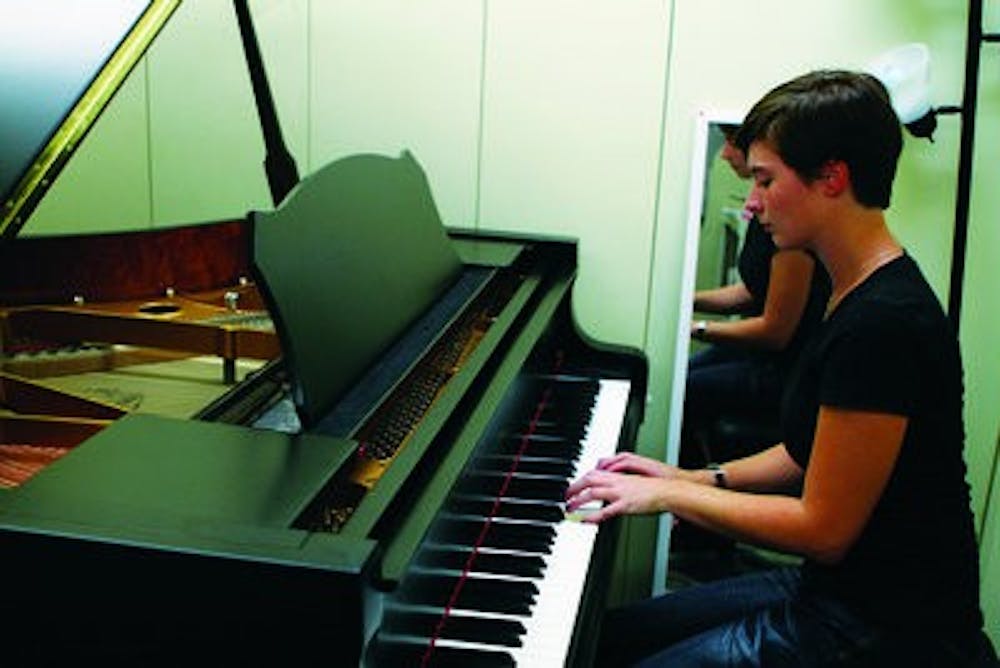Students in the Department of Music are using new keys to play for success. Every major and minor in the program is required to work with pianos, and students now have 19 new pianos to play.
The $175,000 to buy the pianos came from the College of Liberal Arts' equipment budget and allowed the department to buy 15 Knabe upright pianos and four baby grand pianos. The college also received a grant to purchase various other instruments.
"This has been our banner year to purchase instruments," said Sara Baird, chair of the music department, "to replace instruments that were unusable because of their age."
The new pianos replaced those in the practice rooms that were 40-50 years old. Baird said the pianos were "extremely well-used and beyond repair."
"The old pianos were terrible," said Thomas Harbin, senior in piano performance. "It was only when Dr. Baird became director that the music program started getting better. She got things together."
Two of the baby grand pianos were placed in faculty offices, and the other two in practice rooms accessible to piano performance majors. Some of the old pianos were kept as well.
"I prefer to practice on the new ones," said Christina Kettering, sophomore in piano performance and English. "They threw out the really bad ones."
Kettering and other students in the program are supposed to practice at least three hours a day.
"It gets really hectic around noon," Kettering said. "Then it gets hard to find a good room."
Before the pianos were purchased, Kettering said she couldn't tell if her playing was bad, or if it was the piano, but she usually blamed the piano.
"I call the new ones 'ego pianos,'" Kettering said. "They're ego boosters. Everything you play sounds good. The old ones, everything sounds bad."
Auburn went through a formal bidding process to buy the pianos.
Atlanta's PianoWorks won the bid and acquired the pianos for the University.
The older pianos are being sold by the surplus department.
Do you like this story? The Plainsman doesn't accept money from tuition or student fees, and we don't charge a subscription fee. But you can donate to support The Plainsman.





